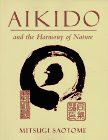I came across a quote the other day which feels very close to what I've recently been thinking about.
Maturity begins when we’re content to feel we’re right about something without feeling the necessity to prove someone else wrong.Sydney Harris
For me, this means to be positive (or, turning it to negative: stop complaining and harming others). Stop commanding and start co-operating. Criticise constructively or, if you can't, learn more and criticize only then. Before anyone thinks I'm talking about how someone I know should behave (which could easily be the case as there have been several people recently whose actions I don't understand) please note that, selfishly, all this is for myself to learn to be a better person living a more harmonious life... or for you if you find that my thoughts can benefit you as well.
I'm writing the background chapters for my PhD thesis which is supposed to involve the 'critical discussion' of relevant literature. I'm finding that most of the things I do in my own research can be backed up by these discussed research papers so I need to discuss and write about their findings. However, I also found that it's very easy to find mistakes, errors in anything you read. If there isn't any better you can spot the only spelling mistake in the 12 page article. It is a temptation to write "this result of the paper is very good but these and these statements are not properly backed up". If I want to write this I have to prove it. But my aim is not to prove that someone else is wrong but what they are right about is useful for me. So I just write the positives, mention the negatives if I improved those and that's it. So it's still not maturity as in the quote but at least it's not complete immaturity.
This maturity can also be tested on the reviews of papers submitted to various conferences or journals. I know several people who got two reviews for their submitted paper (it's standard procedure to have at least two reviewers for one paper), one review said: "Very nice, very relevant to the topic of the conference, let's accept it" and the other was something like "no, it's utterly rubbish, can't even express their thoughts in proper sentences and paragraph 2.3.1 and 3.5.1, etc... has spelling mistakes here and there". Maybe both of them were right in some sense but the latter didn't show maturity for sure. It's just the inner child crying that something is not prefectly presented to them. I guess this might be one of the reasons for doing the reviews anonymously :).
I even read a paper somewhere about how many of the world's most significant scientific publications have been rejected when the authors first tried to publish them somewhere [1][2 - ppt, slide 7]. A famous example is that certain Mr Brin and Mr Page with their Pagerank algorithm have been first rejected at SIGIR (the top of information retrieval conferences)...

As always, I also try to connect both the quote and its relevant real life examples to my aikido studies: Sometimes I feel that I need to say to a beginner "you are not doing this and that right, look I'm better!", and then I think "Hmm...would I have been happy at the beginning if everyone had just listed my mistakes and showed off their skills?". I would have dropped out very soon. It wouldn't be much different for a shy beginner if you showed them how to correct all these mistakes, especially if they are aware of the problems but haven't yet practiced enough to correct them. So if I can I try to show only one thing at a time to avoid total confusion.
One other thing in a training, and I think this is more serious, that sometimes you see or feel that students with more experience and higher rank than you make mistakes. You know what's wrong so you could prove they are not right but you have no idea how to do it better as your mistakes are at a lower level and you need to get to the level where these mistakes appear in your practice. This is real immaturity in the above sense but I think I'm improving in this sense as well. Slowly, but I know I do :).
The good thing in all of these though is that you can see there's always a lot to learn, a lot to improve and a lot to think about how to learn and improve more. To become a more mature, harmoniously living, positive person. Amen :).










2 comments:
I wouldn't worry about criticising higher-grades so much. As long as you're not an in-your-face know-it-all jerk it is not a bad thing. If you consider it from the other side: yes, they make mistakes, like everyone else, but the level of their mistakes gives you a guidance for you to know where you stand and where you are going to stand when you reach their level. Compare and you shall be enlightened.
Criticising beginners is a very delicate subject, on the other hand.
In the present politically correct era it could count as hurting their feelings but if you don't tell them what they are doing wrong, if you don't push them, they may not even be inspired to carry on or to correct their mistakes.
The real trick is in how you "criticise" them. The Japanese have a wonderful way of doing this, which is practically an art form in itself and is hard to describe the real "cheerfulness" of teaching. I was very fortunate to watch a few trainings at the Hombu when I was in Japan and the kindness shown there is something we in the West very much lack. I have a hard time finding aikidoka with such kindness as much on the tatami as in life - myself included - who could even just imitate the Japanese. Buddhism has a term for such an attitude: metta (or metha), loving kindness. But that's a different story. Enough for today.
well, it is also a question of the higher graded persons maturity, is he or she mature(or wise?) enough to accept the criticising. If the person is still willingful to learn something (whish is the most important aim in aikido), just go for it. You might just get an explanation, why-or-how he or she thinks about the problem. Or, you might make him or her a better aikidoka, to wake him or her up, that there is something not quite ok... BUT, sometimes (well, more than sometimes..) the ego is a huge wall, and you just dont even want to mention anything to theres kind of people, becouse you are mature enough to see, there is no point to ring the bell...But you know, there is something wrong, and you want to find out. So what can you do? Be patient :o) THIS is aikido :)))
Uff
Post a Comment